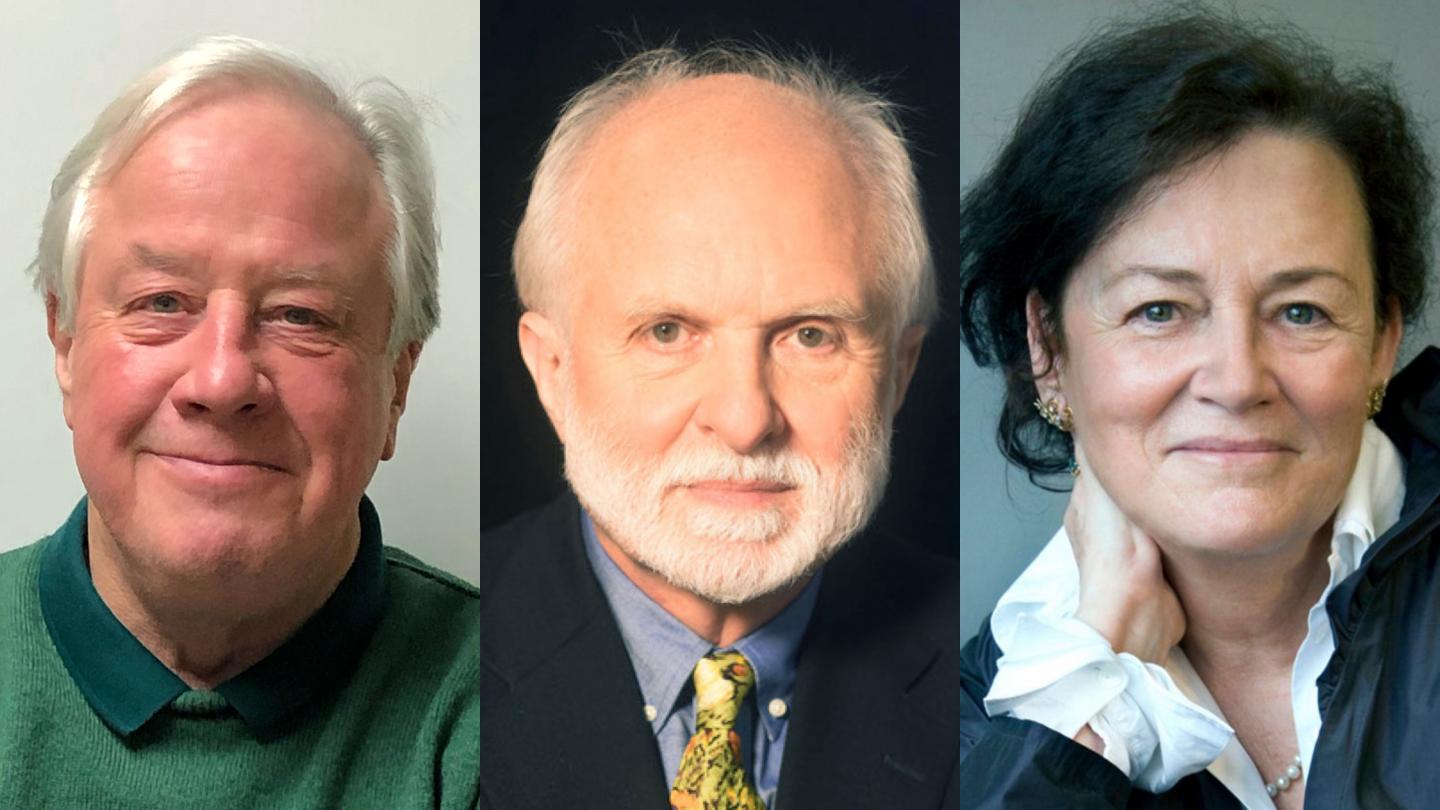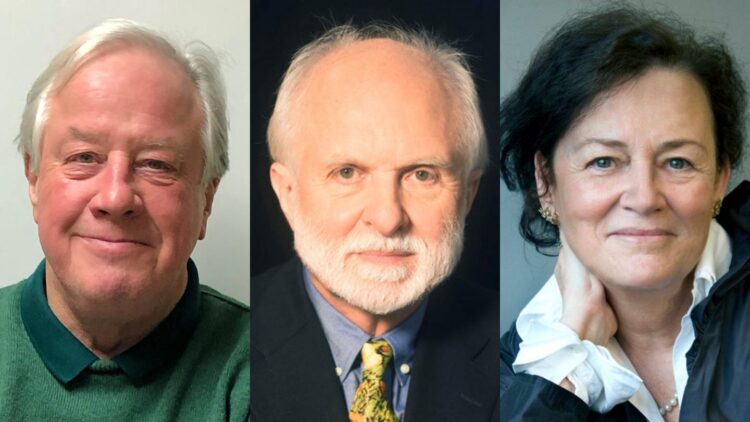
Credit: Columbia University Irving Medical Center
Columbia University will award the 2020 Louisa Gross Horwitz Prize to three scientists:
- Robert Fettiplace, University of Wisconsin-Madison, Madison, Wisconsin, USA
- A. James Hudspeth, Howard Hughes Medical Institute, Chevy Chase, Maryland, and the Rockefeller University, New York, New York, USA
- Christine Petit, Collège de France, Paris, and Institut Pasteur, Paris, France
for discovering the molecular and cellular mechanisms behind hearing.
Hearing is fundamental to human communication and social interaction. Together, Robert Fettiplace, James Hudspeth, and Christine Petit have made invaluable discoveries about how the ear converts sound waves into electrical impulses that the brain interprets as language, music, or noise. Hearing loss is estimated to affect 466 million people worldwide. The work of the three winners of the 2020 Louisa Gross Horwitz Prize helps us understand why hearing is so vulnerable to damage–and proposes ways to protect and repair hearing.
Robert Fettiplace showed that individual sensory cells inside the ear called hair cells, located inside the cochlea (a spiral-shaped cavity within the inner ear), are electrically tuned to specific sound frequencies and are arranged in an ordered pattern, much like the keys of a piano. In subsequent experiments he showed that each hair cell’s electrical tuning frequency is defined by the properties and location of specific types of ion channels in the cell.
James Hudspeth developed innovative ways of studying hair cells, which are difficult to investigate because they are protected by the skull. He showed that bundles of hair cells act like a switch: When vibrations prod the bundles in one direction, the hair cells open channels that let in charged particles, creating electrical signals that are converted by the brain into sound. Moving the bundle in the opposite direction closes these channels.
Christine Petit has identified several groups of genes that play key roles in hearing, bridging the gap between basic science and medicine. Working with families affected by inherited hearing loss, she has uncovered over 20 genes that cause deafness when altered. Petit’s research on the function of these genes has provided valuable insights into how hearing loss occurs at the molecular level, opening a pathway for developing innovative therapies.
Comments
Gerard Karsenty, MD, PhD, professor and chair of the Department of Genetics & Development at Columbia University Vagelos College of Physicians and Surgeons and chair of the Horwitz Prize Committee:
“Recognizing the work of these pioneers in the study of hearing continues the tradition of the Horwitz Prize to recognize trailblazers in biomedical science.”
Awardee Biographies
Robert Fettiplace, PhD, is professor of neuroscience at the University of Wisconsin-Madison. He studied at Cambridge University, where he obtained a BA in medical sciences and a PhD in biophysics.
A. James Hudspeth, MD, PhD, is the F.M. Kirby Professor at the Rockefeller University in New York City and an Investigator at the Howard Hughes Medical Institute. He graduated with a BA in biomedical sciences from Harvard College and completed his MD and PhD at Harvard Medical School and Harvard University, respectively.
Christine Petit, MD, PhD, is professor “Classe exceptionnelle” at Institut Pasteur and professor and chair of Genetics and Cellular Physiology at the College de France in Paris, France. She graduated from Orsay University with a degree in biological sciences, genetics, and biochemistry, received her PhD at Institut Pasteur, and completed her MD at Pierre et Marie Curie University.
The Louisa Gross Horwitz Prize
The Louisa Gross Horwitz Prize was established under the will of the late S. Gross Horwitz through a bequest to Columbia University. It is named in honor of the donor’s mother, Louisa Gross Horwitz, who was the daughter of Dr. Samuel David Gross (1805-89), a prominent Philadelphia surgeon who served as president of the American Medical Association and wrote “Systems of Surgery.” Of the 103 Horwitz Prize winners to date, 51 have gone on to receive Nobel Prizes. Most recently, 2014 Horwitz Prize winner James P. Allison, PhD, of the University of Texas MD Anderson Cancer Center shared the 2018 Nobel Prize in Physiology or Medicine with Tasuku Honjo, MD, PhD, of Kyoto University. For a list of previous Horwitz Prize awardees, please click here.
The 2020 Louisa Gross Horwitz Prize Lectures will be hosted virtually this year. Drs. Fettiplace and Husdpeth will present their lectures Nov. 24 and Dr. Petit later this year on a date yet to be determined. Check the lecture website for more information.
For more information about the Louisa Gross Horwitz Prize and the lectures, please visit https:/
###
Columbia University Irving Medical Center
Columbia University Irving Medical Center provides international leadership in basic, preclinical, and clinical research; medical and health sciences education; and patient care. The medical center trains future leaders and includes the dedicated work of many physicians, scientists, public health professionals, dentists, and nurses at the Vagelos College of Physicians and Surgeons, the Mailman School of Public Health, the College of Dental Medicine, the School of Nursing, the biomedical departments of the Graduate School of Arts and Sciences, and allied research centers and institutions. Columbia University Medical Center is home to the largest medical research enterprise in New York City and State and one of the largest faculty medical practices in the Northeast. The campus that Columbia University Medical Center shares with its hospital partner, NewYork-Presbyterian, is now called the Columbia University Irving Medical Center. For more information, visit cuimc.columbia.edu.
Media Contact
Lucky Tran
[email protected]
Original Source
https:/





